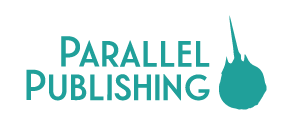Last month, our team discussed Amazon Prime’s The Boys.
Angus: Amazon Prime’s The Boys is a look at the world of superheroes. On the surface everything is clean, bright and building towards that utopian future. But it’s just a thin veneer over some pretty dark and twisted shit!
This is a world where superheroes are made and owned by the Vought Corporation. They are licenced to various governments and other corporations and managed so as to keep their image untarnished whiter than white — at any cost! Beneath the surface, they are twisted, corrupt predators who use their powers and status for their own selfish gratification.
The titular Boys, by comparison, are a ragtag bunch of hero-haters who want to expose the superheroes to the world and take a few out along the way.
Sam: To me, it felt like a continuation from Watchmen: this idea that a superhero society is tainted by human nature. It isn’t clean or pure from the outset. Superheroes have been celebritised but each have their own vices, their own demons, and live in this shady, amoral world which brings out the worst in people. It was captivating, watching just how dark and twisted they would take it. On reflection, it’s nothing surprising and just goes to show how ‘normal’ this kind of behaviour is in our world.
The Boys, the counterpart of ‘the Seven’ — this world’s justice league/Avengers — are seemingly the bad guys in comparison. Where the Seven are paragons of justice and good in the world (at least on the outside), the Boys are essentially terrorists, kidnapping, blackmailing and killing heroes in an attempt to uncover the diabolical truth of ‘supers’ — and it’s wholly satisfying when they do. Who watches the watchmen? The Boys do.
Karim: I felt the scenes between Starlight and The Deep in the conference room, Translucent in the bathroom, and Billy and Hughie in the club were little gratuitous in the first episode, but maybe that shock value was what they wanted to shake up the audience so that we realised just what we were dealing with.
Angus: From the first episode onward this show really appealed to me, reminding me very much of the old Martial Law comics. Much like the comic book (and film adaptation) Watchmen, it asks questions about the morality of the superhuman. It’s dark, dark and more dark.
One of the major themes is the corruption of power. To quote John Dalberg: “power corrupts, and absolute power corrupts absolutely”. In The Boys we get to see what happens when the Seven (the seven most powerful heroes in the world) act out of self interest, without regard for any consequence but their own image.
Sam: I’m going to have to piggyback off Angus here; the theme of absolute power corrupts is prevalent throughout the show. You get glimpses of humanity not just from the heroes, but from the Boys too. Annie, or as she’s better known, ‘Starlight’ (Erin Moriarty), is the newest member of the Seven, and no sooner than five minutes into her role the heroes she idealised blackmail her and demand sexual favours — just because they can. Her naive view of the world is shattered, and it only gets worse from there. As much as she tries to fight it and keep her morals, she too slowly is corrupted by the Seven.
Another theme in the show is revenge, or the question ‘does one evil act beget another?’ When Hughie (Jack Quaid), the audience’s point of view into this world, is involved in a freak accident with a super and his girlfriend is killed, he begins to walk down a bloody and violent path led by Billy Butcher (Karl Urban). It’s great when Hughie gets the chance to kill a super — not even one that wronged him. When he has the power in his hands he takes it, just because he can. It’s so awesome.
Karim: The core theme of Corporate America through the medium of the Vought Corporation elevating and profiting from heroes, while they degenerate under the sustained weight of their almost-absolute power, was laid out pretty strongly. While in parallel Hughie develops from being basically a doormat who would barely say boo to a goose to someone who stands up to the injustice he has been dealt and tries to do something about it, is a well-played variation on a standard arc theme.
Angus: There were no weak episodes in the series. Every single one of them was well-crafted and each took what we know from the previous and twisted it still further as more secrets are teased into the light.
The characterisation and acting was superb, and I would expect no less from the likes of Karl Urban. Antony Starr gives a chilling, terrifying performance as the sociopathic superman Homelander. Chace Crawford plays a surprisingly sympathetic performance as sexual predator The Deep.
Sam: Almost every character felt believable and the world established was amazing. I loved the little details and how corporate everything feels. Heroes aren’t sitting at a table discussing how to reduce crime or stop the newest villain, they’re talking about copyright infringement and ratings. They are more products than people. I loved everything involving the Boys — from the questionable, violent acts to Billy Butcher’s charismatic charm.
Karim: I really enjoyed the lack of compromise where the show really delves into the dark side of the Seven and the other supers, particularly Homelander. Some of the scenes made me quite uncomfortable, in a good way. I’ll also be honest: I am a huge Karl Urban fan and, while his accent wandered around so much it practically covered 10km, his energy and intensity as Billy were electric.
Angus: This series was so perfectly crafted, I feel like it was made for me.
Karim: While dislike is a strong term, I felt that Homelander lacked depth. The good side of the character was always a bit too cheesy to be such an icon. He needed more separation between the public and private persona. I would have preferred if he had been more likeable, with more realistic charisma, rather than the plastic smile in a suit that came across.
Sam: The show is dark and that’s exactly what’s needed to tell this kind of story, but sometimes it can feel excessive. A zealot homophobic priest feels unnecessary when characters like Homelander steal the show.
Angus: Though we have no release date yet, Amazon Prime have commissioned a second season. Yay! There is a tendency to dial back the tension at the beginning of a season so that it can be rachetup towards the finale, but season one closes on such a cliffhanger that season two is going to be hard-pressed to deliver on the tension.
Sam: Hopefully, like all sequels, season two can build on its foundation and not retread old ground. It would be great to develop some of the characters from both factions we didn’t get to spend much time with, and I’m looking forward to seeing the story threads left hanging in season one continue with great anticipation. I cannot wait.


